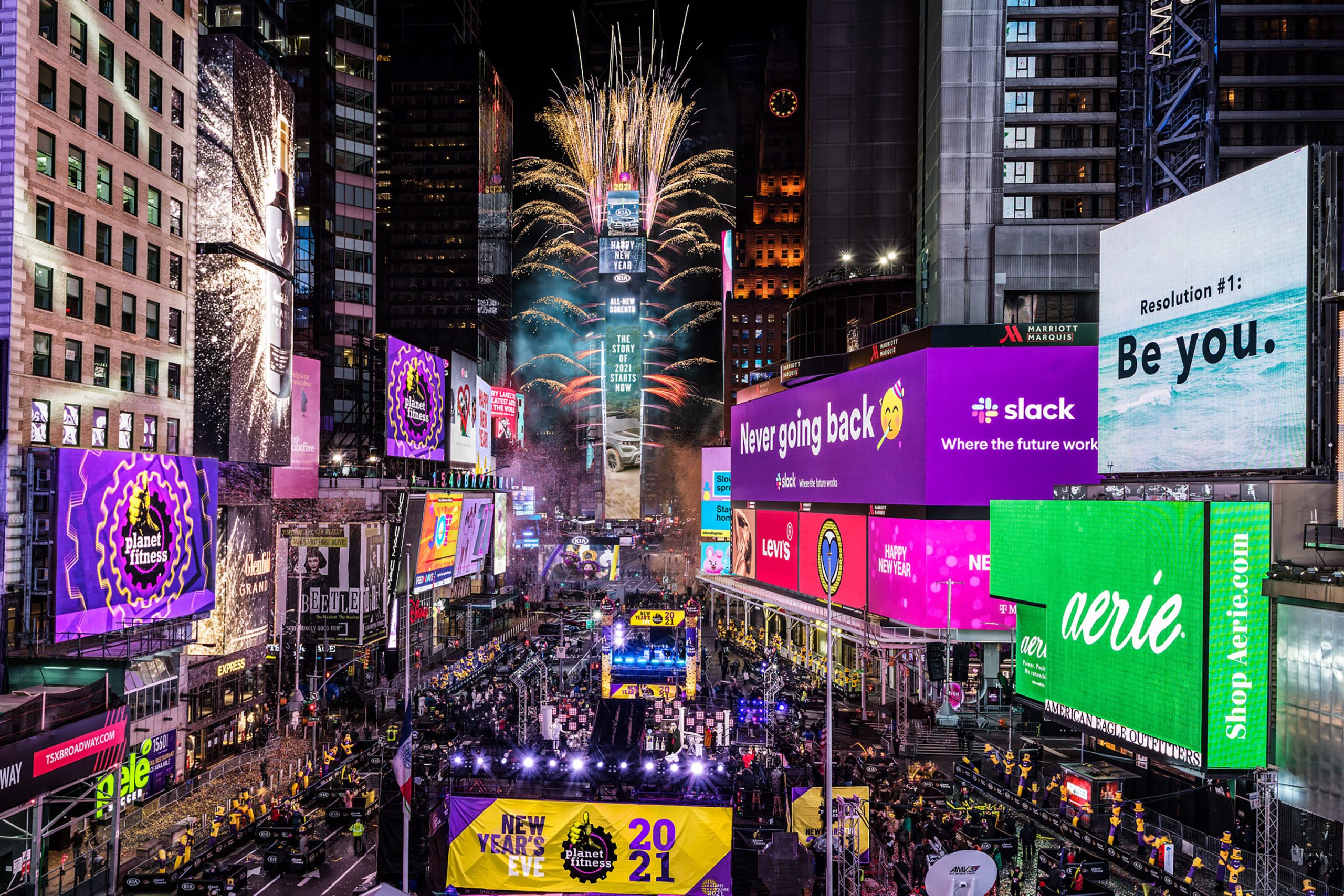On New Year's Eve, amidst the lively festivities of Times Square, country music icon Alan Jackson's poignant rendition of John Lennon's "Imagine" reverberated through the iconic square. Jackson's interpretation, infused with a deep sense of longing and yearning, captivated millions of hearts and sparked a profound reflection on the complexities of the human experience.
"Imagine" has become an anthem for peace and global unity since its release in 1971. Lennon's lyrics envision a world without war, societal divisions, or material possessions, inviting listeners to imagine a utopian future where "there's no need for greed or hunger." Jackson's rendition of the song resonated with this timeless message, reminding us of the shared aspirations and dreams that unite humanity.
In the wake of a tumultuous year marked by division and uncertainty, Jackson's performance served as a powerful reminder of music's ability to heal and inspire. The song's message of hope and resilience offered comfort to those yearning for a brighter future. It also transcended political and cultural boundaries, bringing people together in a shared moment of reflection and unity.
Lennon's iconic status and his advocacy for peace have been widely celebrated and debated. However, his personal life and controversial views have also sparked criticism. Some argue that his public image as a peace activist was at odds with his private actions, highlighting the complexities of his character. Despite these controversies, the enduring power of "Imagine" as a song of hope and solidarity has cemented Lennon's legacy as an influential artist.
The performance of "Imagine" in Times Square highlighted the transformative power of technology in shaping global consciousness. Millions of people around the world witnessed the event through live streams and social media platforms, creating a shared experience that transcended geographical boundaries. This interconnectedness amplifies the message of peace and unity, fostering a sense of collective responsibility and shared hopes in the face of global challenges.
Data from various sources indicates the profound impact of Jackson's rendition of "Imagine." According to Spotify, the song's streams surged by 300% in the days following the performance. Social media platforms reported an outpouring of positive reactions, with many users sharing their personal stories and reflections inspired by the song.
Alan Jackson's performance of "Imagine" in Times Square served as a poignant reminder of the power of music to unite, inspire, and heal. The song's timeless message of peace, unity, and longing resonated deeply with millions of people around the world. It transcended cultural, political, and geographical boundaries, fostering a collective moment of reflection on the complexities of the human experience. As we navigate the challenges and opportunities of the 21st century, Jackson's rendition of "Imagine" offers a beacon of hope and a reminder of the shared aspirations that bind us all.
The performance of "Imagine" in Times Square underscores the importance of fostering global unity, promoting peace, and addressing the underlying factors that divide us. It highlights the need for sustained efforts through diplomacy, education, and cultural exchange to create a more harmonious and equitable world. The song's enduring message serves as a constant reminder of the power of imagination and the collective responsibility we have to build a better future for all.
Read also:
Witness The Clash Of Titans: Manchester United Vs. Southampton Live Stream For Free
Thunder Strike Lightning With 118-102 Win Over 76ers
'Beast Games': The Competition Show That Fueled Crew Chaos And Redefined TV Extremes
